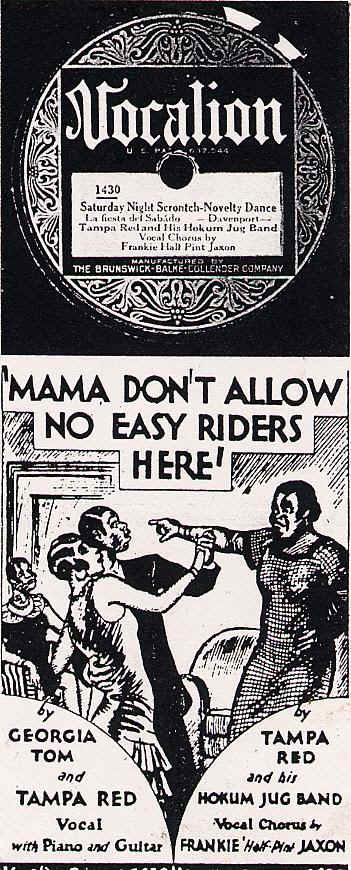|
Blues & Roots #5 - August 15, 2005 |
 |
|
Reviews
|
|
Tuesday, 01 November 2005 20:10 |
 #5: ROOTS OF THE BLUES (Part 1) #5: ROOTS OF THE BLUES (Part 1)
The roots of the blues are embedded in the fertile cultural soil of the western coast of Africa. These roots were transplanted here in the southern United States by the West African slaves who were sold into bondage and shipped like beasts of burden across the Atlantic Ocean. Landed in Virginia and Savannah and New Orleans, their bodies were purchased in the slave markets there by American planters and transported to the vast plantations of the Carolinas, Georgia, Alabama, Mississippi, Louisiana and Arkansas to begin their lives as human chattel.
Throughout the long centuries of slavery in America, every effort was made by the slave-owners to eradicate the Africans' cultural identity and the beliefs, rituals and practices that kept it alive during the brutal course of their captivity. Yet the slave peoples clung ferociously to the shards of their roots that managed to endure and continued to draw sustenance from them, surviving unspeakable hardships and finally emerging from slavery after the Civil War to seek new lives as citizens and wage-earners in this hostile land that was now their own.
Emancipation further provided the former slaves the opportunity to celebrate their spiritual beliefs and cultural practices in public rituals centered on song and dance forms rooted in the ancestral traditions. Rural musicians and bands played their own rough inventions for picnics and social gatherings; professional companies of minstrels toured the small towns and countrysides with their polished entertainments; and an entirely new form of African American music started to arise out of the rustic spiritualist churches of the South to give expression to the terrible intensity and ecstatic passion that throbbed at the very core of the lives and belief systems of the ex-slaves.
By the turn of the 20th century this new root music had developed three singular branches: spirituals, blues and ragtime (soon to be known as jazz). Spirituals praised the Lord and pointed toward a heavenly salvation; blues and jazz were earthly applications of the melodies, harmonies and rhythms of church music which meant to find a way through the trials and tribulations of daily life and provide some form of solace to individual souls suffering under segregation and racial discrimination.
These forms were nourished and spread from musician to musician and congregation to congregation until the advent of race records in the 1920s codified their musical advances and made them available to listeners all over the world. Blues, jazz and gospel became in turn the root forms of all American popular music and kept alive the original spirit and substance of the west African cultural idioms brought over to America by the slave population.
Now, in the 21st century, four hundred years after the first African slaves were shipped to North America, the ancestral music of west Africa has returned to Mississippi in the person of a Senegalese singer, guitarist, composer and traditional i grioti0 known as Guelel Kuumba. Currently a resident of Oxford, Guelel fell in with the North Mississippi blues community and found that his music
The African roots of the music had made their way west from the plantations of Virginia and the Atlantic seaboard and north from the slave markets of New Orleans to take hold in Mississippi.
-Detroit
August 15, 2005
(c)2005 John Sinclair. All Rights Reserved.3.1.6127The roots of the blues are embedded in the fertile cultural soil of the western coast of Africa and were transplanted here in the southern United States by the West African slaves who were sold into bondage and shipped like beasts of burden across the Atlantic Ocean. |